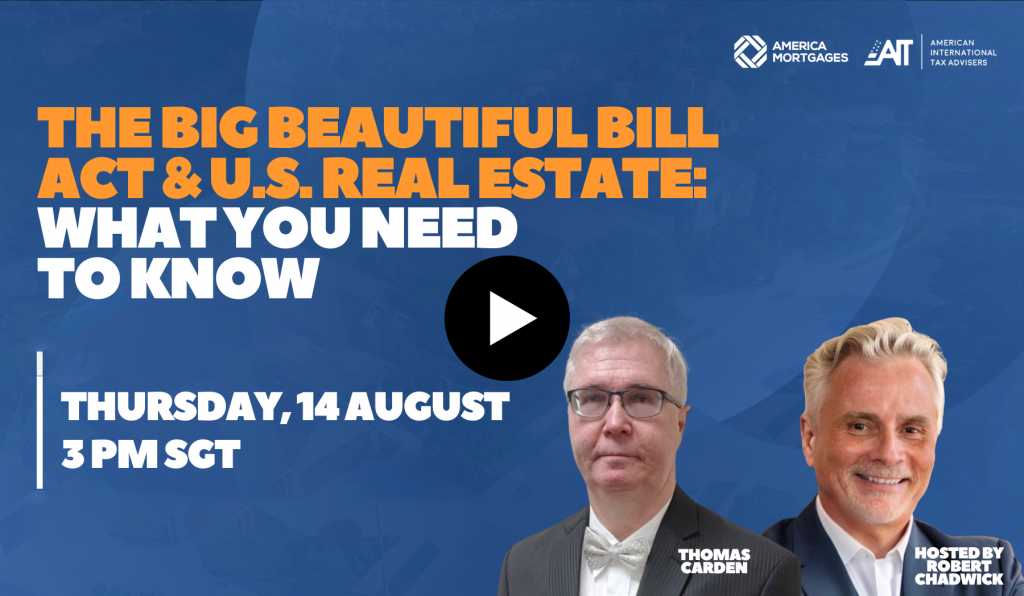As a non-U.S. citizen, the idea of investing in U.S. real estate might seem daunting at first glance. But in 2025, with the global economy shifting and opportunities abound, U.S. property investment for foreigners has never been more appealing. Whether you’re an expat, a foreign national, or simply looking to diversify your portfolio internationally, the U.S. market offers stability, growth potential, and tangible returns that can outpace many other investment avenues. In this comprehensive guide, we’ll explore the key reasons why you should consider U.S. real estate investment as a non-resident, backed by current market trends and insights. If you’re searching for “U.S. property investment for non-citizens” or “benefits of investing in U.S. real estate as a foreigner,” you’ve come to the right place—this article breaks it down step by step to help you make an informed decision.
The Stability and Resilience of the U.S. Real Estate Market in 2025
One of the primary reasons to invest in U.S. real estate as a non-U.S. citizen is the market’s proven resilience. Despite economic fluctuations, the U.S. housing sector has historically bounced back stronger, making it a safe haven for international investors. In 2025, experts predict a steady recovery with gradual price appreciation and stabilizing mortgage rates, driven by post-pandemic demand and limited supply in high-growth areas. Foreign investors are increasingly drawn to this stability, as the U.S. dollar’s strength provides a hedge against currency volatility in home countries.
For non-residents, this means your investment isn’t just about short-term gains—it’s about long-term security. The U.S. real estate market trends in 2025 show supply shortages worsening in in-demand sectors like multifamily and industrial properties, which could lead to higher rental yields and property values. Unlike volatile stock markets, real estate offers physical assets that generate passive income while appreciating over time, making it an ideal choice for foreigners seeking to build wealth abroad.
High Potential for Capital Appreciation and Rental Income
Capital appreciation is a cornerstone of why foreign investors choose U.S. property. Over the past decade, U.S. home values have risen consistently, and 2025 forecasts indicate continued growth at a subdued but positive pace of around 3% or more in many regions. Cities like Austin, Texas; Charlotte, North Carolina; and Dallas, Texas, stand out as top destinations for foreign real estate investment due to their booming economies, job growth, and high quality of life. As a non-U.S. citizen, investing in these areas allows you to benefit from urban expansion and tech-driven development without needing to relocate.
Rental income is another compelling factor. The U.S. offers strong rental yields, especially in markets with high demand from young professionals and families. Foreign buyers can generate steady cash flow through investment properties, with opportunities in residential, commercial, or even luxury second homes. In 2025, international transactions in U.S. residential real estate have seen a surge, with foreign buyers purchasing $56 billion worth of existing homes—a 33.2% increase year-over-year. This trend underscores the attractiveness of U.S. properties for generating revenue, whether through short-term rentals like Airbnb or long-term leases.
Portfolio Diversification and Hedge Against Global Risks
Diversifying your investments is crucial in an uncertain world, and U.S. real estate provides an excellent way for non-citizens to spread risk. By adding U.S. properties to your portfolio, you reduce dependence on your home country’s economy, which might be prone to political instability, inflation, or market downturns. The U.S. market’s diversity—ranging from urban apartments in New York to suburban homes in Florida—allows foreigners to tailor investments to their risk tolerance and goals.
Moreover, as a hedge against inflation, real estate values and rents often rise with living costs, preserving your purchasing power. For non-residents, this diversification extends to currency benefits; holding assets in USD can protect against devaluation in weaker currencies. In 2025, with global real estate outlooks pointing to robust U.S. investment pipelines, foreign investors are positioned to capitalize on these advantages.
Tax Advantages and Legal Accessibility for Foreign Investors
The U.S. tax system offers several perks for non-U.S. citizens investing in real estate. While foreigners face a 30% withholding tax on gross rental income, you can elect to be taxed on net income instead, potentially reducing your liability through deductions like depreciation, maintenance, and interest expenses. Real Estate Investment Trusts (REITs) are particularly beneficial, providing liquidity, high dividends, and exemption from certain taxes like FIRPTA for qualified investors.
Legally, there’s no barrier—non-citizens can buy any type of property without restrictions on nationality. You don’t need a visa or residency to own U.S. real estate; even forming an LLC can offer asset protection and tax efficiency. However, estate tax considerations are important, with a $60,000 exemption for non-residents, so proper structuring is key to minimizing inheritance taxes.
Overcoming Challenges: Financing and Regulations for Non-Residents
While the benefits are clear, non-U.S. citizens often face hurdles like complex regulations and financing. U.S. mortgage options for non-residents can be limited compared to citizens, as lenders may require higher down payments or alternative credit verification since foreign credit histories aren’t always recognized.
That said, specialized financing is available. When exploring how to get a U.S. mortgage as a foreigner, it’s wise to look at options such as America Mortgages, the industry leader in non-resident lending, or international banks like HSBC, which cater to foreign nationals with tailored solutions. These providers understand the unique needs of non-citizens, offering loans without U.S. credit history requirements and flexible terms for investment properties.
Regulatory challenges, such as FIRPTA withholding on sales, can be navigated with professional advice. In 2025, with foreign investment in U.S. real estate on the rise despite a brief dollar decline earlier in the year, savvy non-residents are finding ways to mitigate risks and maximize returns.
Emerging Opportunities in 2025: Tech, Sustainability, and High-Growth Markets
Looking ahead, 2025 brings exciting trends for foreign investors. The luxury real estate market is evolving with a focus on sustainable properties and tech-integrated homes, appealing to eco-conscious buyers. Commercial real estate, though cautious due to high rates, shows promise with 71% of investors pausing but eyeing rebounds in multifamily and office sectors.
For non-U.S. citizens, passive options like real estate syndications allow investment without direct management, offering diversification, appreciation, and tax perks. Markets influenced by foreign buyers, such as Florida and California, continue to drive prices and development, highlighting the significant role international capital plays.
How to Get Started with U.S. Property Investment as a Foreigner
Ready to dive in? Start by researching markets that align with your goals—focus on areas with strong job growth and rental demand. Consult tax advisors familiar with non-resident rules to optimize your structure, whether through direct ownership or entities like LLCs.
For financing a U.S. property as a non-citizen, connect with experts who specialize in international borrowers. Building a team—including realtors, lawyers, and lenders—ensures a smooth process. Remember, no U.S. residency is required; you can invest remotely and manage properties through agents.
Conclusion: Unlock Your Wealth Potential with U.S. Real Estate Investment
Investing in U.S. real estate as a non-U.S. citizen isn’t just an opportunity—it’s a strategic move toward financial independence in 2025. From capital appreciation and rental income to diversification and tax benefits, the advantages far outweigh the challenges when approached thoughtfully. As foreign investment surges, with billions pouring into the market annually, now is the time to act.
If you’re pondering “should I buy U.S. property as a foreigner” or seeking “non-resident U.S. real estate investment tips,” start by evaluating your options and consulting professionals. With the right guidance, your investment could yield lasting returns. Ready to explore? Research financing pathways today and take the first step toward owning a piece of the American dream.
Frequently Asked Questions
Q1. Why should non-U.S. citizens invest in U.S. real estate in 2025?
A: Investing in U.S. real estate as a non-U.S. citizen offers stability, growth potential, and tangible returns amid shifting global economies. The market’s resilience, with steady recovery and price appreciation driven by post-pandemic demand and limited supply, makes it appealing for foreigners seeking long-term security and passive income through physical assets.
Q2. What are the benefits of U.S. property investment for foreigners?
A: Key benefits include capital appreciation, strong rental yields, portfolio diversification, and protection against global risks like inflation and currency volatility. In 2025, foreign buyers have surged, purchasing $56 billion in homes—a 33.2% increase—highlighting the market’s attractiveness for expats and non-residents building wealth abroad.
Q3. How stable is the U.S. real estate market for non-residents in 2025?
A: The U.S. real estate market remains highly stable and resilient for non-residents, historically rebounding from fluctuations. Experts forecast gradual price growth and stabilizing mortgage rates, with supply shortages in multifamily and industrial sectors boosting rental yields, providing a hedge against home-country economic instability.
Q4. What is the capital appreciation potential in U.S. real estate for foreign investors?
A: Capital appreciation is a major draw, with U.S. home values rising consistently over the past decade and expected 3%+ growth in 2025. Top cities like Austin, Charlotte, and Dallas offer booming economies and tech-driven development, allowing non-U.S. citizens to benefit without relocating.
Q5. How can non-U.S. citizens earn rental income from U.S. properties?
A: Foreign investors can generate steady cash flow through high-demand markets for young professionals and families, using residential, commercial, or luxury properties. Options like short-term Airbnb rentals or long-term leases capitalize on strong yields, especially in high-growth areas.
Q6. How does investing in U.S. real estate help diversify portfolios for non-citizens?
A: U.S. real estate diversifies by reducing reliance on home-country economies prone to political or inflationary risks. Its variety—from New York apartments to Florida homes—allows tailored investments, while USD assets hedge against currency devaluation, positioning foreigners for robust 2025 opportunities.
Q7. What tax advantages are there for foreigners investing in U.S. real estate?
A: Non-U.S. citizens can opt for net income taxation to reduce the 30% withholding on rentals via deductions like depreciation and maintenance. REITs offer liquidity, high dividends, and FIRPTA exemptions, while forming an LLC provides asset protection and efficiency, though estate taxes require careful planning with a $60,000 exemption.
Q8. Can non-U.S. citizens buy property in the U.S. without residency or visa?
A: Yes, there are no nationality restrictions—non-citizens can purchase any property type without a visa or residency. Investments can be managed remotely, with options like LLCs for tax efficiency and asset protection, making U.S. real estate legally accessible for foreigners.
Q9. What challenges do non-residents face in U.S. real estate investment and how to overcome them?
A: Challenges include limited mortgage options requiring higher down payments and alternative credit checks, plus regulations like FIRPTA. Overcome them by seeking specialized financing from providers like America Mortgages, the industry leader in non-resident lending, or HSBC, and consulting professionals for risk mitigation.
Q10. What are emerging trends in U.S. real estate for foreign investors in 2025?
A: Trends include sustainable and tech-integrated luxury properties, rebounds in multifamily and commercial sectors, and passive options like syndications for diversification without management. Markets like Florida and California, influenced by international buyers, drive growth and appeal to eco-conscious non-U.S. citizens.
Q11. How to get started with U.S. property investment as a foreigner?
A: Begin by researching high-growth markets with strong job and rental demand. Consult tax advisors for optimal structures like LLCs, build a team of realtors, lawyers, and lenders specializing in international borrowers, and explore financing—remember, no U.S. residency is needed for remote investment.
Q12. Is U.S. real estate investment worth it for non-U.S. citizens seeking financial independence?
A: Absolutely—it’s a strategic move offering capital appreciation, rental income, diversification, and tax perks that outweigh challenges. With surging foreign investments in 2025, consulting professionals and evaluating options like America Mortgages or HSBC can unlock lasting returns and the American dream for non-residents.
¿Por qué debería invertir en bienes raíces en EE. UU. como no ciudadano estadounidense? Su guía 2025 para una inversión inmobiliaria inteligente
Como no ciudadano estadounidense, la idea de invertir en bienes raíces en EE. UU. podría parecer intimidante a primera vista. Pero en 2025, con la economía global en transformación y oportunidades abundantes, la inversión en propiedades en EE. UU. para extranjeros nunca ha sido más atractiva. Ya sea que sea un expatriado, un ciudadano extranjero o simplemente esté buscando diversificar su cartera internacionalmente, el mercado estadounidense ofrece estabilidad, potencial de crecimiento y retornos tangibles que pueden superar muchas otras vías de inversión. En esta guía completa, exploraremos las razones clave por las que debería considerar la inversión en bienes raíces en EE. UU. como no residente, respaldadas por tendencias actuales del mercado y perspectivas. Si está buscando “inversión en propiedades en EE. UU. para no ciudadanos” o “beneficios de invertir en bienes raíces en EE. UU. como extranjero”, ha llegado al lugar correcto: este artículo lo desglosa paso a paso para ayudarlo a tomar una decisión informada.
La estabilidad y resiliencia del mercado inmobiliario estadounidense en 2025
Una de las razones principales para invertir en bienes raíces en EE. UU. como no ciudadano estadounidense es la resiliencia comprobada del mercado. A pesar de las fluctuaciones económicas, el sector de la vivienda en EE. UU. históricamente se ha recuperado con más fuerza, convirtiéndolo en un refugio seguro para inversores internacionales. En 2025, los expertos predicen una recuperación constante con una apreciación gradual de los precios y tasas hipotecarias estabilizándose, impulsadas por la demanda post-pandemia y una oferta limitada en áreas de alto crecimiento. Los inversores extranjeros se sienten cada vez más atraídos por esta estabilidad, ya que la fortaleza del dólar estadounidense proporciona una cobertura contra la volatilidad monetaria en sus países de origen.
Para los no residentes, esto significa que su inversión no se trata solo de ganancias a corto plazo, sino de seguridad a largo plazo. Las tendencias del mercado inmobiliario estadounidense en 2025 muestran que las escaseces de oferta están empeorando en sectores de alta demanda como propiedades multifamiliares e industriales, lo que podría llevar a mayores rendimientos por alquiler y valores de propiedad. A diferencia de los mercados bursátiles volátiles, los bienes raíces ofrecen activos físicos que generan ingresos pasivos mientras se aprecian con el tiempo, lo que lo convierte en una opción ideal para extranjeros que buscan construir riqueza en el extranjero.
Alto potencial para la apreciación del capital y los ingresos por alquiler
La apreciación del capital es una piedra angular de por qué los inversores extranjeros eligen propiedades en EE. UU. Durante la última década, los valores de las viviendas en EE. UU. han aumentado de manera consistente, y las previsiones para 2025 indican un crecimiento continuo a un ritmo moderado pero positivo de alrededor del 3% o más en muchas regiones. Ciudades como Austin, Texas; Charlotte, Carolina del Norte; y Dallas, Texas, destacan como destinos principales para la inversión inmobiliaria extranjera debido a sus economías en auge, crecimiento laboral y alta calidad de vida. Como no ciudadano estadounidense, invertir en estas áreas le permite beneficiarse de la expansión urbana y el desarrollo impulsado por la tecnología sin necesidad de reubicarse.
Los ingresos por alquiler son otro factor convincente. EE. UU. ofrece fuertes rendimientos por alquiler, especialmente en mercados con alta demanda de profesionales jóvenes y familias. Los compradores extranjeros pueden generar un flujo de efectivo constante a través de propiedades de inversión, con oportunidades en propiedades residenciales, comerciales o incluso segundas residencias de lujo. En 2025, las transacciones internacionales en bienes raíces residenciales en EE. UU. han experimentado un aumento, con compradores extranjeros adquiriendo $56 mil millones en viviendas existentes, un aumento del 33.2% interanual. Esta tendencia subraya el atractivo de las propiedades estadounidenses para generar ingresos, ya sea a través de alquileres a corto plazo como Airbnb o arrendamientos a largo plazo.
Diversificación de la cartera y cobertura contra riesgos globales
Diversificar sus inversiones es crucial en un mundo incierto, y los bienes raíces en EE. UU. proporcionan una excelente manera para que los no ciudadanos distribuyan el riesgo. Al agregar propiedades estadounidenses a su cartera, reduce la dependencia de la economía de su país de origen, que podría estar propensa a inestabilidad política, inflación o caídas del mercado. La diversidad del mercado estadounidense, que va desde apartamentos urbanos en Nueva York hasta casas suburbanas en Florida, permite a los extranjeros adaptar las inversiones a su tolerancia al riesgo y objetivos.
Además, como cobertura contra la inflación, los valores de los bienes raíces y los alquileres a menudo aumentan con los costos de vida, preservando su poder adquisitivo. Para los no residentes, esta diversificación se extiende a beneficios cambiarios; mantener activos en USD puede proteger contra la devaluación en monedas más débiles. En 2025, con perspectivas globales de bienes raíces que apuntan a sólidos flujos de inversión en EE. UU., los inversores extranjeros están posicionados para capitalizar estas ventajas.
Ventajas fiscales y accesibilidad legal para inversores extranjeros
El sistema fiscal estadounidense ofrece varias ventajas para los no ciudadanos estadounidenses que invierten en bienes raíces. Aunque los extranjeros enfrentan una retención fiscal del 30% sobre los ingresos brutos por alquiler, puede optar por ser gravado sobre los ingresos netos, lo que potencialmente reduce su responsabilidad a través de deducciones como depreciación, mantenimiento y gastos de intereses. Los Fideicomisos de Inversión Inmobiliaria (REITs) son particularmente beneficiosos, ya que proporcionan liquidez, altos dividendos y exención de ciertos impuestos como FIRPTA para inversores calificados.
Legalmente, no hay barreras: los no ciudadanos pueden comprar cualquier tipo de propiedad sin restricciones de nacionalidad. No necesita una visa o residencia para poseer bienes raíces en EE. UU.; incluso formar una LLC puede ofrecer protección de activos y eficiencia fiscal. Sin embargo, las consideraciones fiscales sobre herencias son importantes, con una exención de $60,000 para no residentes, por lo que una estructuración adecuada es clave para minimizar los impuestos de herencia.
Superando desafíos: Financiamiento y regulaciones para no residentes
Aunque los beneficios son claros, los no ciudadanos estadounidenses a menudo enfrentan obstáculos como regulaciones complejas y financiamiento. Las opciones hipotecarias en EE. UU. para no residentes pueden ser limitadas en comparación con los ciudadanos, ya que los prestamistas pueden requerir pagos iniciales más altos o verificaciones de crédito alternativas, ya que los historiales crediticios extranjeros no siempre son reconocidos.
Dicho esto, hay financiamiento especializado disponible. Cuando explore cómo obtener una hipoteca en EE. UU. como extranjero, es prudente considerar opciones como America Mortgages, el líder de la industria en préstamos para no residentes, o bancos internacionales como HSBC, que atienden a ciudadanos extranjeros con soluciones personalizadas. Estos proveedores comprenden las necesidades únicas de los no ciudadanos, ofreciendo préstamos sin requisitos de historial crediticio estadounidense y términos flexibles para propiedades de inversión.
Los desafíos regulatorios, como la retención de FIRPTA en las ventas, pueden manejarse con asesoramiento profesional. En 2025, con la inversión extranjera en bienes raíces en EE. UU. en aumento a pesar de una breve caída del dólar a principios del año, los no residentes astutos están encontrando formas de mitigar riesgos y maximizar retornos.
Oportunidades emergentes en 2025: Tecnología, sostenibilidad y mercados de alto crecimiento
Mirando hacia adelante, 2025 trae tendencias emocionantes para los inversores extranjeros. El mercado inmobiliario de lujo está evolucionando con un enfoque en propiedades sostenibles y hogares integrados con tecnología, atractivos para compradores conscientes del medio ambiente. El sector inmobiliario comercial, aunque cauteloso debido a las altas tasas, muestra promesas con un 71% de los inversores pausando pero observando recuperaciones en sectores multifamiliares y de oficinas.
Para los no ciudadanos estadounidenses, opciones pasivas como las sindicaciones inmobiliarias permiten invertir sin gestión directa, ofreciendo diversificación, apreciación y beneficios fiscales. Los mercados influenciados por compradores extranjeros, como Florida y California, continúan impulsando precios y desarrollo, destacando el papel significativo que juega el capital internacional.
Cómo empezar con la inversión en propiedades en EE. UU. como extranjero
¿Listo para sumergirse? Comience investigando mercados que se alineen con sus objetivos: enfóquese en áreas con fuerte crecimiento laboral y demanda de alquiler. Consulte con asesores fiscales familiarizados con las reglas para no residentes para optimizar su estructura, ya sea a través de la propiedad directa o entidades como LLCs.
Para financiar una propiedad en EE. UU. como no ciudadano, conéctese con expertos que se especialicen en prestatarios internacionales. Construir un equipo, que incluya agentes inmobiliarios, abogados y prestamistas, asegura un proceso fluido. Recuerde, no se requiere residencia en EE. UU.; puede invertir de forma remota y gestionar propiedades a través de agentes.
Conclusión: Desbloquee su potencial de riqueza con la inversión en bienes raíces en EE. UU.
Invertir en bienes raíces en EE. UU. como no ciudadano estadounidense no es solo una oportunidad: es un movimiento estratégico hacia la independencia financiera en 2025. Desde la apreciación del capital y los ingresos por alquiler hasta la diversificación y los beneficios fiscales, las ventajas superan con creces los desafíos cuando se abordan de manera pensada. A medida que la inversión extranjera aumenta, con miles de millones fluyendo al mercado anualmente, ahora es el momento de actuar.
Si está reflexionando sobre “debería comprar propiedades en EE. UU. como extranjero” o buscando “consejos de inversión en bienes raíces en EE. UU. para no residentes”, comience evaluando sus opciones y consultando profesionales. Con la guía adecuada, su inversión podría generar retornos duraderos. ¿Listo para explorar? Investigue rutas de financiamiento hoy y dé el primer paso hacia poseer una pieza del sueño americano.
Preguntas y respuestas:
¿Por qué deberían los no ciudadanos estadounidenses invertir en bienes raíces en EE. UU. en 2025?
Invertir en bienes raíces en EE. UU. como no ciudadano estadounidense ofrece estabilidad, potencial de crecimiento y retornos tangibles en medio de economías globales en transformación. La resiliencia del mercado, con una recuperación constante y apreciación de precios impulsada por la demanda post-pandemia y oferta limitada, lo hace atractivo para extranjeros que buscan seguridad a largo plazo e ingresos pasivos a través de activos físicos.
¿Cuáles son los beneficios de la inversión en propiedades en EE. UU. para extranjeros?
Los beneficios clave incluyen apreciación del capital, fuertes rendimientos por alquiler, diversificación de la cartera y protección contra riesgos globales como la inflación y la volatilidad monetaria. En 2025, los compradores extranjeros han aumentado, adquiriendo $56 mil millones en viviendas, un aumento del 33.2%, destacando el atractivo del mercado para expatriados y no residentes que construyen riqueza en el extranjero.
¿Cuán estable es el mercado inmobiliario estadounidense para no residentes en 2025?
El mercado inmobiliario estadounidense sigue siendo altamente estable y resiliente para no residentes, recuperándose históricamente de las fluctuaciones. Los expertos pronostican un crecimiento gradual de precios y tasas hipotecarias estabilizándose, con escaseces de oferta en sectores multifamiliares e industriales que impulsan los rendimientos por alquiler, proporcionando una cobertura contra la inestabilidad económica del país de origen.
¿Cuál es el potencial de apreciación del capital en bienes raíces en EE. UU. para inversores extranjeros?
La apreciación del capital es un gran atractivo, con valores de viviendas en EE. UU. aumentando consistentemente en la última década y un crecimiento esperado de más del 3% en 2025. Ciudades principales como Austin, Charlotte y Dallas ofrecen economías en auge y desarrollo impulsado por la tecnología, permitiendo a los no ciudadanos estadounidenses beneficiarse sin reubicarse.
¿Cómo pueden los no ciudadanos estadounidenses generar ingresos por alquiler de propiedades en EE. UU.?
Los inversores extranjeros pueden generar un flujo de efectivo constante en mercados de alta demanda para profesionales jóvenes y familias, utilizando propiedades residenciales, comerciales o de lujo. Opciones como alquileres a corto plazo en Airbnb o arrendamientos a largo plazo capitalizan en fuertes rendimientos, especialmente en áreas de alto crecimiento.
¿Cómo ayuda la inversión en bienes raíces en EE. UU. a diversificar carteras para no ciudadanos?
Los bienes raíces en EE. UU. diversifican al reducir la dependencia de economías del país de origen propensas a riesgos políticos o inflacionarios. Su variedad, desde apartamentos en Nueva York hasta casas en Florida, permite inversiones adaptadas, mientras que los activos en USD cubren contra la devaluación monetaria, posicionando a los extranjeros para oportunidades robustas en 2025.
¿Cuáles son las ventajas fiscales para extranjeros que invierten en bienes raíces en EE. UU.?
Los no ciudadanos estadounidenses pueden optar por la tributación sobre ingresos netos para reducir la retención del 30% en alquileres mediante deducciones como depreciación y mantenimiento. Los REITs ofrecen liquidez, altos dividendos y exenciones de FIRPTA, mientras que formar una LLC proporciona protección de activos y eficiencia, aunque los impuestos de herencia requieren planificación cuidadosa con una exención de $60,000.
¿Pueden los no ciudadanos estadounidenses comprar propiedades en EE. UU. sin residencia o visa?
Sí, no hay restricciones de nacionalidad: los no ciudadanos pueden comprar cualquier tipo de propiedad sin visa o residencia. Las inversiones se pueden gestionar de forma remota, con opciones como LLCs para eficiencia fiscal y protección de activos, haciendo que los bienes raíces en EE. UU. sean legalmente accesibles para extranjeros.
¿Cuáles son los desafíos que enfrentan los no residentes en la inversión inmobiliaria en EE. UU. y cómo superarlos?
Los desafíos incluyen opciones hipotecarias limitadas que requieren pagos iniciales más altos y verificaciones de crédito alternativas, más regulaciones como FIRPTA. Supérelos buscando financiamiento especializado de proveedores como America Mortgages, el líder de la industria en préstamos para no residentes, o HSBC, y consultando profesionales para mitigar riesgos.
¿Cuáles son las tendencias emergentes en bienes raíces en EE. UU. para inversores extranjeros en 2025?
Las tendencias incluyen propiedades de lujo sostenibles e integradas con tecnología, recuperaciones en sectores multifamiliares y comerciales, y opciones pasivas como sindicaciones para diversificación sin gestión. Mercados como Florida y California, influenciados por compradores internacionales, impulsan el crecimiento y atraen a no ciudadanos estadounidenses conscientes del medio ambiente.
¿Cómo empezar con la inversión en propiedades en EE. UU. como extranjero?
Comience investigando mercados de alto crecimiento con fuerte empleo y demanda de alquiler. Consulte asesores fiscales para estructuras óptimas como LLCs, construya un equipo de agentes inmobiliarios, abogados y prestamistas especializados en prestatarios internacionales, y explore financiamiento: recuerde, no se necesita residencia en EE. UU. para inversiones remotas.
¿Vale la pena la inversión en bienes raíces en EE. UU. para no ciudadanos estadounidenses que buscan independencia financiera?
Absolutamente: es un movimiento estratégico que ofrece apreciación del capital, ingresos por alquiler, diversificación y ventajas fiscales que superan los desafíos. Con inversiones extranjeras en aumento en 2025, consultar profesionales y evaluar opciones como America Mortgages o HSBC puede desbloquear retornos duraderos y el sueño americano para no residentes.










